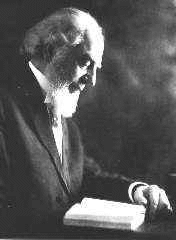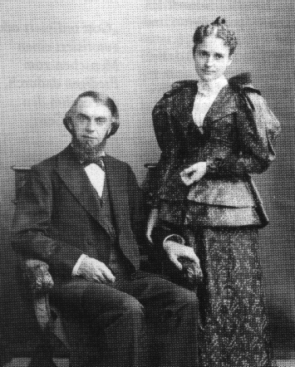There have been some good posts on this thread. The JWs in their official histories compare Russell with Rutherford in this way and since it reflects somewhat negatively on Rutherford, it is likely true if they admit it themselves. It is true that Russell promoted a congregational, democratic form of church government. He tried to keep the Society, a business corporation, separate from the churches. On the other hand, he did run the Society as President for years, it seems with great power. It is true that he did not openly promote himself as "that servant", in fact he wrote very little about it, and when he did write about it, it was ambiguous and vague. After his death, it was openly acknowledged that he was "that servant", so it is likely that many regarded him that way during his lifetime. It is likely that Russell himself agreed with this. It was not clear what it meant. But since the Bible says "that servant" was placed OVER the household, this would imply a greater authority and position over other Christians. Although Russell promoted democracy, this doctrine of "that servant" conflicted with it, and would give Russell a position of authority without any equal. Russell in his Last Will intended for the Society to be run after death with a balance of power, and the obvious intention was to prevent abuse of power by one individual.
The dates and chronology did not matter most to CTR. He regarded the Ransom and Restitution to be more important. His book that was distributed most, The Divine Plan of the Ages, did not deal extensively with the dates, that was covered in other books. He spoke and wrote on a wide variety of subjects, some being mainstream Christianity, but other opinions were unorthodox but appealing to some who were attracted to Russell's message. Russell persuaded some followers because of the dates, but others were persuaded by other teachings of his.
There were several divisions and challenges to Russell's authority. There was the division that is discussed in the Conspiracy Exposed. Russell's wife left him. Around 1909 there were quite a few who left over the New Covenant and other doctrines. Others left around 1914.
The Conspiracy Exposed was Russell's personal defense against charges that were made, so there is little doctrinal discussion there, so it isn't surprising that certain terms don't show up. Somewhere there Russell stated that he sold his business around 1882 or so, for a certain figure over $300,000 and decided to live off the interest of his investment so that he would not have to work for a living and could devote himself to religious work instead. He told what some of his investments were. In one of the links in the original post, it is stated that Russell earned most of his fortune after starting the Watchtower, but no proof is given, it is assumed based the census records of 1870. But here Russell states the figure that he sold his business for. Perhaps there is some record of the sale in Pittsburgh that could verify this. When he donated his property to the Society later around 1908, he had around the same amount that he did in 1882, so it is possible that he earned his wealth apart from the Society.
What was Pastor Russell really like? I knew two people that worked for him at Bethel, both were elderly by the time I knew them, and died long ago. Their descriptions of him were positively glowing. One of them radiated a spiritual aura and good cheer, one of the few people I have met that I would call a "saint", who regularly practiced deeds of kindness to anyone. I asked him what Pastor Russell was like and his face lit up, and he said he was "like Jesus", but could not tell me how. The other man's recollection was detailed and vivid, and told many stories which are personal to tell now. He remarked about Pastor Russell's eyes, that were striking, perhaps their color or they sparkled, I forget. Pastor Russell had a sense of humor, which cannot be detected from his writings. He was highly skilled at managing and dealing with people, was persuasive, and accessible to those who worked for him.
He was a celebrity in his lifetime, whose picture was widely published, was recognized on the street, and in judging now this has to be taken into account to understand him. His enemies admitted that he was a very good businessman and promoter, but he was judged as an archheretic, and had several scandals attached to him. It seems now that some of his followers were involved in a personality cult with Russell, like with a father/children, beloved/lover dynamic with cultic overtones. Russell must have been personally charismatic and attractive, even though the admiration was taken too far.
Some of the scandals do look suspicious, but the evidence that would convict him beyond a reasonable doubt is often lacking. It is indeed difficult to really get a feel for what he was like with the opinions about him being so divergent. The label of "cult" and "cult leader" does not help, it demonizes and stagmatizes, and fails to explain the complexity of religion, especially new ones, and how some people are geniunely helped and others hurt. There were likely more than a few that were hurt by Russell's religion that have not been heard from.
If Russell was not "that servant" or God's appointed one, and his chronological scheme was basically wrong, it cannot but reflect negatively on his character, and he has to be held accountable for it. Excuses and apologies are no good. Even assuming that Russell was well-intentioned and saintly, if he was wrong about his dates, it needs to be given up and acknowledged. The shadow of Russell still hangs over the JWs and present-day Bible Students, just like Wiliam Miller, Ellen White and Herbert Armstrong. Whether Russell was good or bad or both, if he was wrong, he was wrong.


